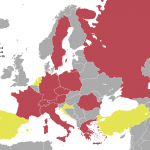In this industry, correlations are something we are very familiar with. For instance platinum follows the same trend as the CRB (commodities) index which has nothing to do with platinum yet, where it goes, platinum goes and that has been the case for years. In a similar way, there’s an inverse correlation with gold and the USD - when one goes up the other tends to go down.
Step into the internet world and you can find another example of, in this instance, a rather unusual correlation: Facebook and unemployment. You may be surprised to learn that the unemployment rate is more correlated with Google searches for “Facebook” than with any other search term!
It is a well known fact that some companies and industries do especially well in tough times and Facebook is one of them. Google’s Correlate finds search patterns which correspond with real-world trends. If you enter a query into the search box, it will give you search terms that have a similar pattern of activity. The tool also works the other way so that you upload your own data, and see what search terms line up. If you upload actual unemployment rate data to see what search patterns correlate most closely, Facebook searches dominate. Higher unemployment translates to more Facebook searches, and lower unemployment means fewer Facebook searches. They are so closely tied to unemployment, they outnumber searches involving actual unemployment-related topics!
It may seem reasonable to suggest that more unemployed people spend more time surfing the internet, either to pass their time or to connect with people who might help them find a job, but it is still surprising that Facebook is by a long way, the most correlated search. There doesn’t seem to be any other logical explanation for this occurrence and Facebook has not, as yet, provided any hard data as to why this is happening. Our explanation? Don’t ask us - we’re too busy working!


















